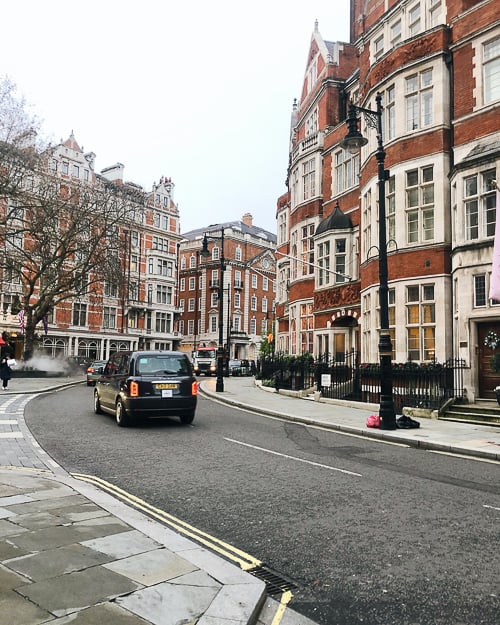Why do people love living in the United Kingdom?
There are many reasons why people fall in love with the United Kingdom. One of the oldest democracies in the world, Great Britain is the eccentric mix of an old-school world leader with a 21st-century innovator. Britain’s fascinating history is reflected in the architecture of so many of its ancient cities, towns, and villages. Its beautiful countryside with lush, green fields and wooded glades is still every bit as pretty as a Constable painting. It is a land of majesty that undercuts everything with a cracking sense of humor. But what entices people to apply for a UK visa, take up UK Residency, and make a move to UK citizenship? Read the ultimate guide to living in the United Kingdom, to find out.

What is The United Kingdom?
Let’s start by giving it its full name which is, The United Kingdom of Great Britain and Northern Ireland. Great Britain comprises three nations, England, Scotland, and Wales. Northern Ireland is not a part of Great Britain, but it is part of the United Kingdom. So it is incorrect to use the two names interchangeably. Put simply the United Kingdom is a sovereign state made up of 4 countries.
You may also have heard the term “The British Isles”. This refers to around 6000 islands, all located in the North Atlantic, just off the coast of North-West Europe. They include the mainland of Great Britain, Ireland, and smaller islands such as Anglesey, Sky, The Hebrides, The Isle of Man, and The Isle of Wight.
The UK has one central government, but there has been a devolution of many powers to each of the 4 countries. In 2014 there was a referendum in Scotland to determine if they wanted to remain part of the UK. There was a narrow majority in favor of remaining.
Since Brexit, there has been refreshed interest in independence as the Scots were not in favor of departing from the European Union. And since Brexit, the Northern Ireland protocol has thrown the position of Northern Ireland as part of the UK into doubt. The Good Friday Agreement in 1998 brought relative peace to the country and guaranteed a soft border with the Republic of Ireland. Retaining this soft border effectively creates a customs border in the Irish Sea between Northern Ireland and the UK. Which is not acceptable as it is one country. So the future remains uncertain for Northern Ireland.
The United Kingdom of New Opportunities
The UK’s recent departure from the EU may have been controversial. Still, it has nonetheless opened up a whole new world of possibilities. Great Britain has never been more committed to worldwide trade and new business propositions, creating opportunities for talented individuals to take up UK citizenship. The UK government intends to position Great Britain as a global hub for business and innovation. The UK has a long history of diplomacy, and the UK passport is one of the most desirable traveling companions you could wish for.
UK Economy
Optimism is high for this new chapter of UK business, both with the EU and worldwide. London is the home of international finance, and the UK is one of the best places in the world for Entrepreneurs. The British Pound is the oldest currency in use and one of the most converted currencies in the world. In addition to finance, countries around the world have copied the UK legal system.
This recognition is in part responsible for the British reputation for ‘Fair Play”. UK citizenship means access to one of the highest standards of living in the world.
Healthcare
The UK health service is the envy of the world. Partly because of the level of healthcare, and partly because it is free of charge for British citizens. With specialist hospitals, emergency paramedics and 24-hour telephone medical assistance, it is a global leader in healthcare systems. Private healthcare is available with many of the world’s best surgeons having clinics and consultancies in the United Kingdom.
As a migrant to the UK can you access free healthcare on the NHS? The answer is yes, but most will be required to pay a healthcare surcharge as part of their visa application. For adults, the cost is £624 per year, for example, £3,120 for a 5-year visa. The same charge will apply to all other adults who are accompanying you. For anyone applying to stay in the UK who is under 18 or on a student visa, the cost is £470 per year. You must pay the fee before arrival in the UK for all the family members who will be living in the UK.
Even if you take out private healthcare, the conditions require you to pay the health surcharge as part of your visa application. Exceptions to this include people who are applying for settlement in the UK and asylum seekers. For the full list of exceptions see the list here.
This will enable you to access all primary healthcare such as registering with a GP and a Dentist. However, there is a crisis in the UK regarding NHS dental care. Most dentists are refusing to take new NHS patients and are not legally required to do so.
Should you take out private health insurance when living in the UK?
It’s very much a personal choice. The health surcharge allows access to the NHS, but it is only a partial solution. There are some healthcare services under the NHS for which you have to pay a contribution such as dental care, eye care, and prescriptions.
You are also only covered for primary care. Secondary care (hospital-based care) is not included, as your status is not “indefinite leave to remain”. So for most non-urgent hospital stays, the hospital will charge you in advance for treatment. This is because you can return to your home country for these procedures. If it is deemed to be urgent, the hospital will provide treatment and bill you afterward. The exceptions to this include:
- Accident and emergency treatments
- Treatment of communicable diseases such as HIV, TB, MERS, and many STDs.
Private healthcare is definitely the safest option as it will beat the NHS waiting lists, and your policy should cover you for hospital stays.
Working in the UK
Living in the UK on a UK visa, UK residence permit, or UK citizenship, finding employment shouldn’t pose a problem for enterprising individuals. Currently, Britain’s unemployment level is the lowest it has been in 40 years with many companies looking worldwide for employees. Since Brexit and Covid-19 there is a serious staff shortage in many industries. Salaries have had to increase to lure staff from afar to fill these positions.
There are also generous entitlements to paid holidays, sick pay, maternity, and other benefits. And the added benefit of “bank holidays” which are public holidays that you can take on top of your annual leave allowance. A typical working week is between 37-40 hours per week, Monday to Friday, but of course, this will vary depending upon the job. Health and safety in the workplace is a legal requirement as is equal rights for all and adequate training for all staff.
Cost of Living in the UK
While a decent salary is an important reason to immigrate to the United Kingdom, the cost of living can be a drawback. In 2022 the UK is experiencing a “cost of living crisis”. Brought on by Brexit, COVID-19 and the war in Ukraine inflation is at its highest rate in 40 years. The most significant expense when moving to the UK is accommodation. That said, a lot depends on the location. London and the South East have considerably higher costs than the rest of the country.
Moreover, Manchester is a great place to live as an international student. With a friendly and diverse culture, prestigious universities, exciting nightlife, and reasonable options for student accommodation in Manchester, it certainly is one of the best and most affordable student cities in the UK.
But wages are highest in London, and there is the widest range of available employment. Manchester is a great option. It offers good employment opportunities and many of the conveniences of a cosmopolitan city at a fraction of the cost of the capital.
Finding A Place To Live in The UK
Perhaps the first decision is whether to rent or buy. The UK is a property-obsessed nation. Every other TV program is concerned with buying your own house and turning a profit. House prices have risen enormously in many housing booms over the past 5 decades. The current boom was mostly created by the removal of Stamp Duty during the pandemic.
Can you raise a mortgage in the UK as a non-UK citizen? The answer is yes. If you have indefinite leave to remain, a permanent job, and good credit history you should have no problems at all. If you do not have settled status, you will usually need at least 3 years remaining on your visa. Lenders will lend between 4.5 to 6 times your annual salary. For a joint mortgage, they will take both incomes into account.
Buying costs are relatively low in the UK, compared to many European countries, particularly if you are buying a property with a modest budget. Click on this link to read all about the various stamp duty thresholds.
Renting is a great option when you first arrive in the UK and is the most likely scenario. You will usually require one month’s rent in advance and one month’s deposit. The good news in the UK is that the landlord pays the agent’s fee. You will usually sign a shorthold tenancy agreement which will require a minimum stay of 6 or 12 months. After that, both you and the landlord will be required to give one or two months’ notice. This means it is very flexible for the tenant but also a little insecure. If the landlord decides he wants to sell the property after only a year you will need to move on quickly.
Rents are understandably very high in London and in the South-East in general. Which makes other areas appealing if you can find work. Private landlords are abundant because Buy To Let mortgages are very easy to come by.
The easiest way to find a property to rent or buy is by searching online using sites such as Rightmove and Zoopla.

A UK Education
Many people immigrate to the United Kingdom for a British education, either for themselves or their children. The UK boasts a top-ranking education system with some of the best schools, colleges, and universities in the world. You can choose to send your children to state schools where they will receive a free education. No more paying out to International Schools for an English-speaking education! The key to taking advantage of the free education system is to move within a catchment area of a great school.
You can research schools using the excellent OFSTED reports which thoroughly assess and rate every school in the country. Generally speaking, these schools are located in the more well-to-do areas that also make for beautiful places to live. If money is no object, the UK has one of the largest selections of fee-paying schools in the world. Choose from relatively affordable “private schools” to elite “public schools” such as Eton, Harrow, and Roedean. And if your child has a strong leaning towards it, there are many conservatoire schools that specialize in music or performing arts too.
For adult education, again the choices are enormous and diverse; from part-time evening courses to full-time degrees at top universities. Employers around the world respect British Universities’ offering of a wide range of subjects and disciplines. It’s a well-known fact that a British degree opens doors all over the world and can lead to a higher salary.
It’s also useful to note that English language workshops are available to those undertaking UK citizenship.
Family Matters in the UK
Aside from the educational advantages, UK citizenship as a family is an excellent idea. Facilities for children are superb. Free libraries, parks, and museums, as well as subsidized swimming pools and sports facilities for all ages. There are many low-cost clubs and associations for children to learn everything from musical instruments to rock climbing.
Town and Country Life in the UK
From the iconic white cliffs to the Scottish Islands, the geography of Great Britain is breathtaking. A modern, integrated transport system means that cultural cities such as London and Glasgow are as easy to reach as rural Stonehenge and Glastonbury. With castles, cathedrals, ancient villages, and modern architecture, the UK has many different sights and landscapes to discover. The University cities of Oxford and Cambridge are wonderful places to live and explore. As are the gorgeous and historic cities of Bath, Bristol, Edinburgh, and York to name but a few.
If hiking is your thing the UK has beautiful National Parks all over the country. The Peak District, The Lake District, Snowdonia, The Yorkshire Dales, and Dartmoor are stunning destinations to explore on foot or by mountain bike. Use Wikiloc to find and navigate a suitable walk wherever you are living in the United Kingdom.
The British seaside has a unique charm that has to be experienced. Fish and chips, a pint of beer, a stroll on the pier, and a fair ride or two are a must. But cities like Brighton show that there is far more to offer than this. An hour’s commute from London Brighton is a great option if you like good food, cocktail bars, comedy clubs, and celebrity spotting. For more scenic locations try Cornwall, Devon, and Dorset, or at the other end of the country the atmospheric Whitby with its Dracula connections.
Culture in the UK
For culture vultures, living in the United Kingdom is hard to beat. From Shakespeare to West End musicals to fringe theatre festivals and Opera and Ballet there is something for every lover of the arts. Art galleries abound in all the smaller cities as well as the capital. The government was extremely generous in its bid to sustain the arts through the pandemic. And the appetite for culture seems to have come back with a vengeance. Now is a great time to see some heavy-weight actors on stage. Ralph Fiennes, Mark Rylance, Ruth Wilson, Nicola Walker, Eddie Redmayne, and Bill Pullman are treading those boards in 2022.
And of course, the UK’s influence on pop music is legendary; from the Beatles to Adele it is still up there with the best. Live music is abundant from arena concerts and huge-scale festivals like Glastonbury and Reading to intimate pub gigs in every town.
Great British Food
While in the ’50s, living in the United Kingdom meant boring food times have changed. The food scene in the UK is now one of the best in the world. British produce is superb with almost every town boasting an Instagram-worthy Farmer’s market. With a vast coastline, you can find sparkling fresh fish all over the country, along with heritage meats, organic vegetables, and artisanal cheese.
Britain has long been a melting pot of different cultures. It is arguably in its food scene that we can best enjoy and experience the rich diversity of cultures. It is wonderful to seek out the specific ethnic areas in many cities to try these foods authentically. From Baltis in Birmingham to Lebanese on the Edgeware Rd or Korean food in New Malden, you won’t be disappointed. From world-famous chefs to world cuisine, UK restaurants are some of the best on the planet with every style of cooking imaginable. And don’t forget the classics; full English breakfasts, fish ‘n’ chips, Cornish pasties, scones with clotted cream…
Pub Life is living in the United Kingdom
The Great British Pub is envied the world over and only Ireland can claim to have a similar pub culture to the UK. Cozy in winter, there is no better place to sit by a fire with a pint of ale. In the summer the beer garden comes to life and is a wonderful place to while away an afternoon in the sun. They are the heart of every community and a great way to meet people. Don’t miss the pub quiz! British beer is renowned and was producing real ales. Bitters and stouts long before anyone deemed to describe them as “craft beers”. And Gin and Tonic was a staple here long before it took over the world as the latest trend. The wine selection in pubs is now pretty good. Other popular drinks are Pimms and Aperol Spritz. And most pubs now serve very good food. Don’t miss the Sunday Roast!

Why do Brits Always Talk About the Weather?
Because it makes such a difference in their lives! The UK is known to have a pretty dire climate. A lot of rain and generally cloudy days. It is not excessively cold in winter like in many continental countries, but it can be very grey. But one thing is undeniable when the sun shines on an English summer’s day it can’t be beaten. It is rarely too hot or too humid. And it is truly glorious to spend a summer’s day eating a picnic in the countryside or in a gorgeous London park.
If you want to choose your location in the UK based on the weather you want to aim for the South East. The West of the country gets the worst of the rain and the further north you go the colder it gets. London, the Home Counties, and the South East definitely have the best climate in the UK.
Join the club
Immigrating to the United Kingdom doesn’t mean saying goodbye to your own culture. The UK has always been a diverse, multicultural society. For centuries, the UK has been home to people of different religions, politics, and outlooks. Integrating into a new country takes time, but many cities and towns offer English classes and local information printed in several different languages. Find out how to get UK citizenship without losing your current passport.
Does living in the United Kingdom appeal to you?
One thing that puts people off immigrating to the UK is the notorious ‘red tape or bureaucracy. Admittedly, the UK has a complicated visa and residency process. The scope for error means that it is essential to have a good lawyer to guide you. The need for quality legal advice is critical with the current departure of the United Kingdom from the EU. A good Immigration lawyer will be aware of new opportunities and will ensure you don’t miss out. Whether you’re looking for a UK visa, UK residency, or UK citizenship, head to the next tab to review your options.
For the full range of visas available for Living in The United Kingdom, please check out our full guide here.








